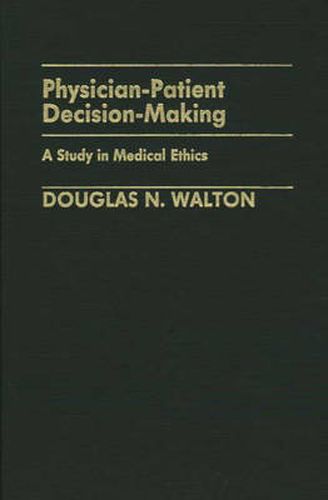Readings Newsletter
Become a Readings Member to make your shopping experience even easier.
Sign in or sign up for free!
You’re not far away from qualifying for FREE standard shipping within Australia
You’ve qualified for FREE standard shipping within Australia
The cart is loading…






Walton offers a comprehensive, flexible model for physician-patient decision making, the first such tool designed to be applied at the level of each particular case. Based on Aristotelian practical reasoning, it develops a method of reasonable dialogue, a question- and-answer process of interaction leading to informed consent on the part of the patient, and to a decision–mutually arrived at–reflecting both high medical standards and the patient’s felt needs. After setting forth his model, he applies it to three vital ethical issues: acts of omission, the cessation of treatment, and possible side effects of treatments. In the final chapter, Walton shows how his method functions in light of the real-life complexities of the clinical encounter and how it bears on ethical questions concerning health-care policy, attitudes toward treatment and toward the medical profession, reasonableness of expectations, and the setting of realistic goals of treatment.
$9.00 standard shipping within Australia
FREE standard shipping within Australia for orders over $100.00
Express & International shipping calculated at checkout
Walton offers a comprehensive, flexible model for physician-patient decision making, the first such tool designed to be applied at the level of each particular case. Based on Aristotelian practical reasoning, it develops a method of reasonable dialogue, a question- and-answer process of interaction leading to informed consent on the part of the patient, and to a decision–mutually arrived at–reflecting both high medical standards and the patient’s felt needs. After setting forth his model, he applies it to three vital ethical issues: acts of omission, the cessation of treatment, and possible side effects of treatments. In the final chapter, Walton shows how his method functions in light of the real-life complexities of the clinical encounter and how it bears on ethical questions concerning health-care policy, attitudes toward treatment and toward the medical profession, reasonableness of expectations, and the setting of realistic goals of treatment.